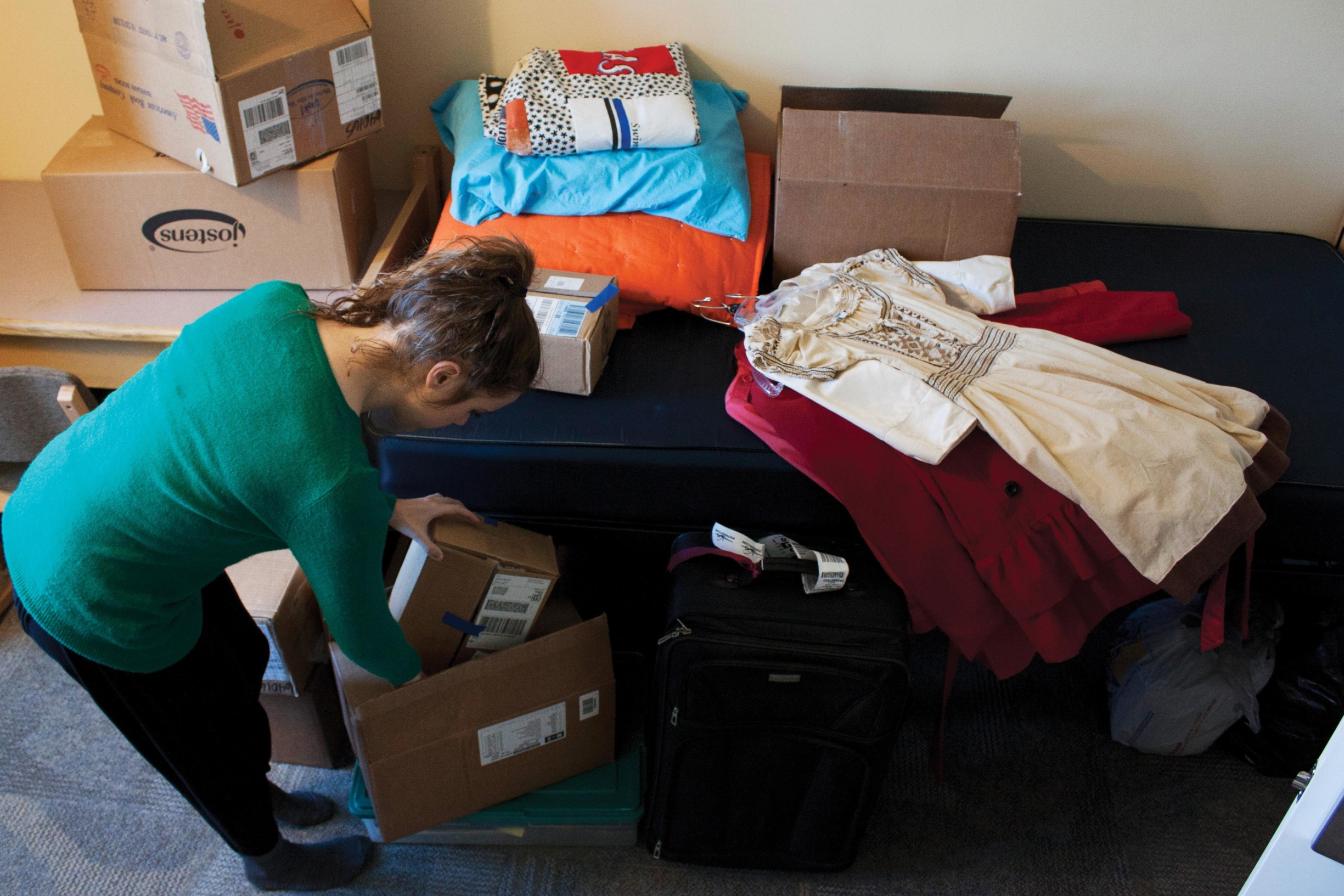Dose of reality: Evictions happen in college
Where a student lives during their college years is a huge component of the college experience as a whole. Students often spend countless hours researching and touring various places both on and off campus. However, that can be jeopardized if policies are broken and eviction results.
Although eviction is a real possibility, it should never come as a surprise to anyone, said Whitney Milligan, director of Residence Life at USU.
She said in order for somebody to be evicted, the Residence Life staff has to have met with them on at least two to three occasions and given them verbal and written notice of the potential consequence.
“We don’t just come out and evict someone unless there’s some really violent or dangerous scenario going on,” Milligan said. “In order for somebody to be evicted, we have met with them on at least two to three occasions and at least given them verbal and written notice of that potential consequence.”
If a student is evicted from on-campus housing, it is usually based on violation of the drug or alcohol policies, she said.
“It’s in the student code of conduct and in our policies not to drink alcohol on campus or to do drugs,” Milligan said. “If they’re evicted, they’ve chosen to disregard our policies and violated their contracts which are very spelled out in the handbook and contract they they signed before moving in.”
Some of the same drug and alcohol policies are also applicable to certain off campus housing as well.
Dan Ellison, property manager at Oakridge Apartments on 1400 North, said they see about five to 10 evictions a year due to drugs or alcohol since they are not allowed anywhere on their property.
“We’ve had problems at our apartments with alcohol and such,” Ellison said. “But as long as they’re in good communication with the management and they just come in and tell us what happened, then I always work with them.”
Justyn Saxton, a freshman studying geology, currently lives at Oakridge observed the eviction process in January when his roommate was evicted.
“The cops showed up one day while I was in class,” he said. “And that’s what led to his eviction.”
He said he and his roommates had reported the smell of marijuana in their apartment multiple times.
“I think we reported it soon enough,” Saxton said. “Management came down and could smell it, too. That’s when they called the cops.”
The tenant had already been fined for uncleanliness and had been in contact with the management about his behavior, but continued to violate policies, Saxton said.
“If there’s someone who’s just been trouble and getting complaint after complaint, then we’ll try to resolve it with them,” Ellison said. “If they don’t do it, then we have the right to give them a three-day notice to comply or vacate.”
Saxton said the man didn’t cooperate for the drug test when the police showed up, but he did leave on the day his eviction notice dictated.
While the police may be called to help mediate a situation, it is rare, unless a minor is involved or it has become a dangerous situation, Milligan said.
“We’re just there to keep it safe,” said Sgt. Travis Dunn with the USU Police. “That’s the only reason we get involved. We’re not going to force anybody out. There’s civil courts that go through that process. We’re just there to make sure that when eviction does take place that we’re there to keep the peace, and make sure everything’s civil.”
Milligan said they try to work with students to some degree on when their eviction date is, but it all depends on the scenario.
According to the federal Fair Housing Act, management has to give a certain time period for the resident to vacate. USU Housing’s policy says if one is evicted, they cannot live on campus again for another year. Whether or not they are banned from the premises depends on the situation.
If there is concern the evicted individual will be disruptive or retaliate against another resident or staff, then part of the condition of their eviction will be that they are not allowed to be on certain property. Milligan said they do work with the campus police on that.
“Because it is a hostile environment,” Dunn said. “Where people don’t want to leave, people are forcing them to leave. Blood pressure is up, and some things might be said that maybe shouldn’t be said. So we’re just there to keep the peace and that’s all. We don’t physically grab anybody, or force them out. That would be all done through a court order.”
USU has more lenient policies than a lot of schools and uses a developmental approach to help the students learn to be responsible adults with roles in a community, Milligan said.
“We try not to be really punitive and just fine people,” Milligan said. “We really want them to learn from what’s going on. We help them understand why our response is what it is and why our policies are what they are, that their behavior impacts those around them. It’s not just them.”
Saxton said when his roommate was evicted, he and his other roommates were relieved.
“We did feel bad for him and hope he can turn his life around,” he said. “He would take things out of my roommate’s rooms, so we had management install locks on the individual room doors. Now that he’s gone, it’s nice to trust having stuff in my room. We can now keep our apartment nice and clean and it smells good again.”
Saxton said if anyone is ever in a bad situation with a roommate to try to help them unless they won’t listen. At that point, it is important to seek management intervention.
– hunter.chelsea92@gmail.com

